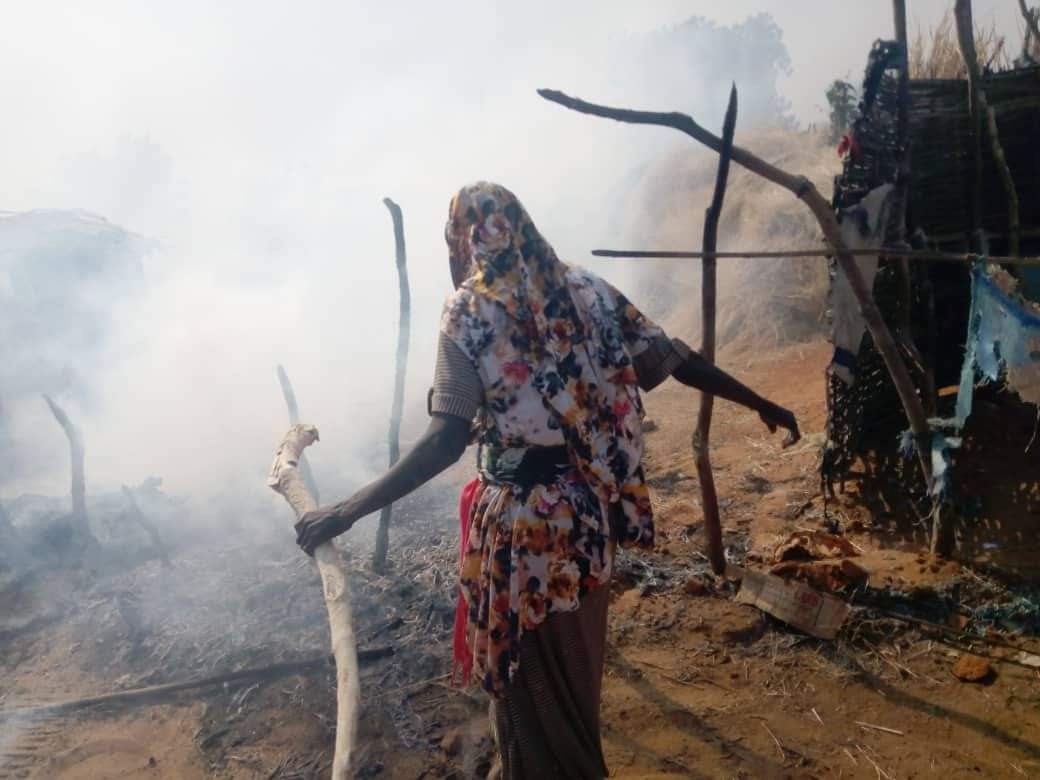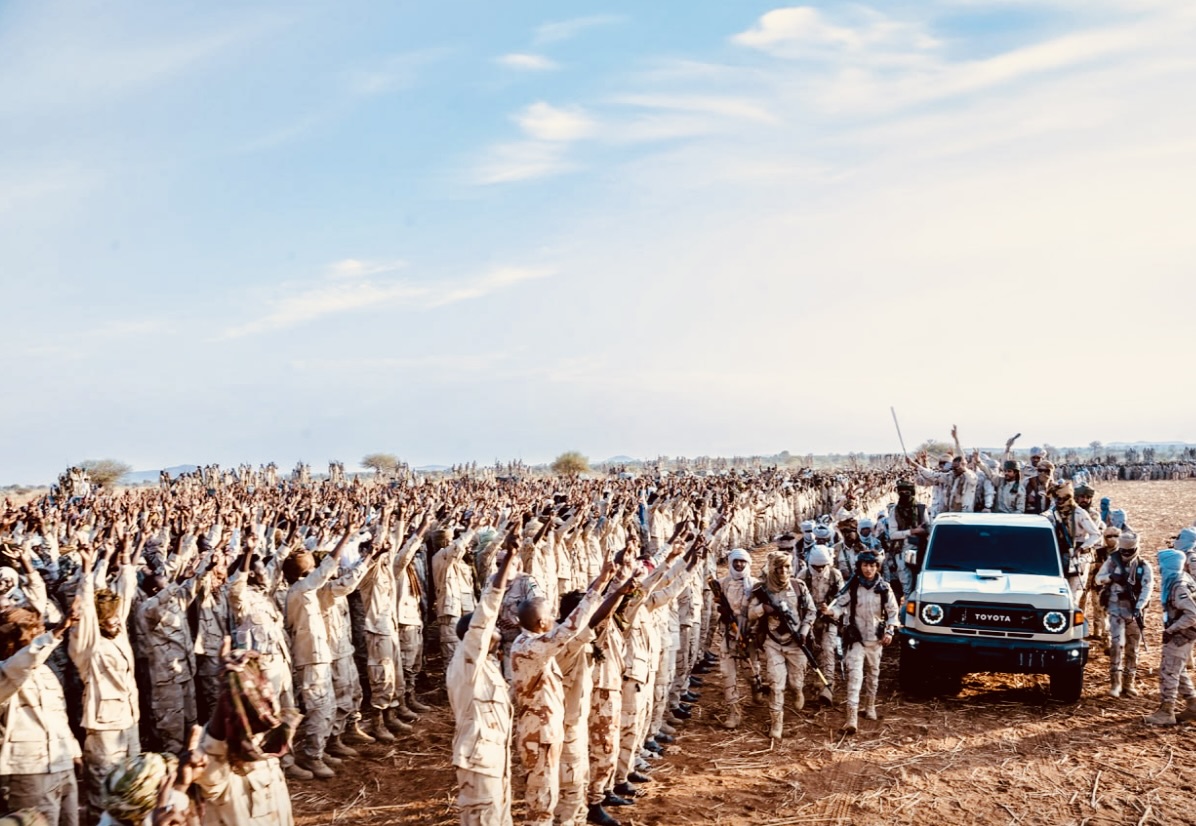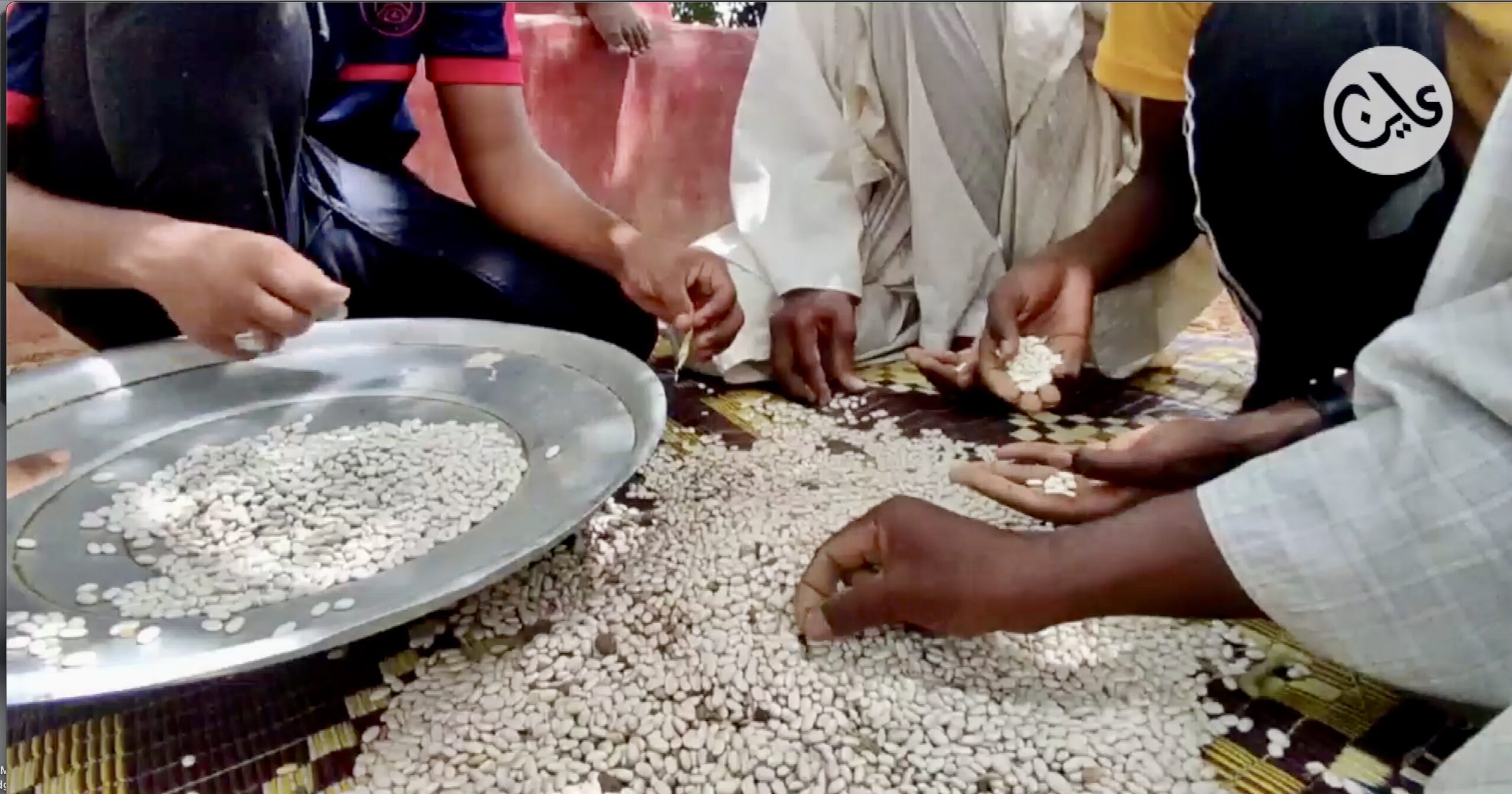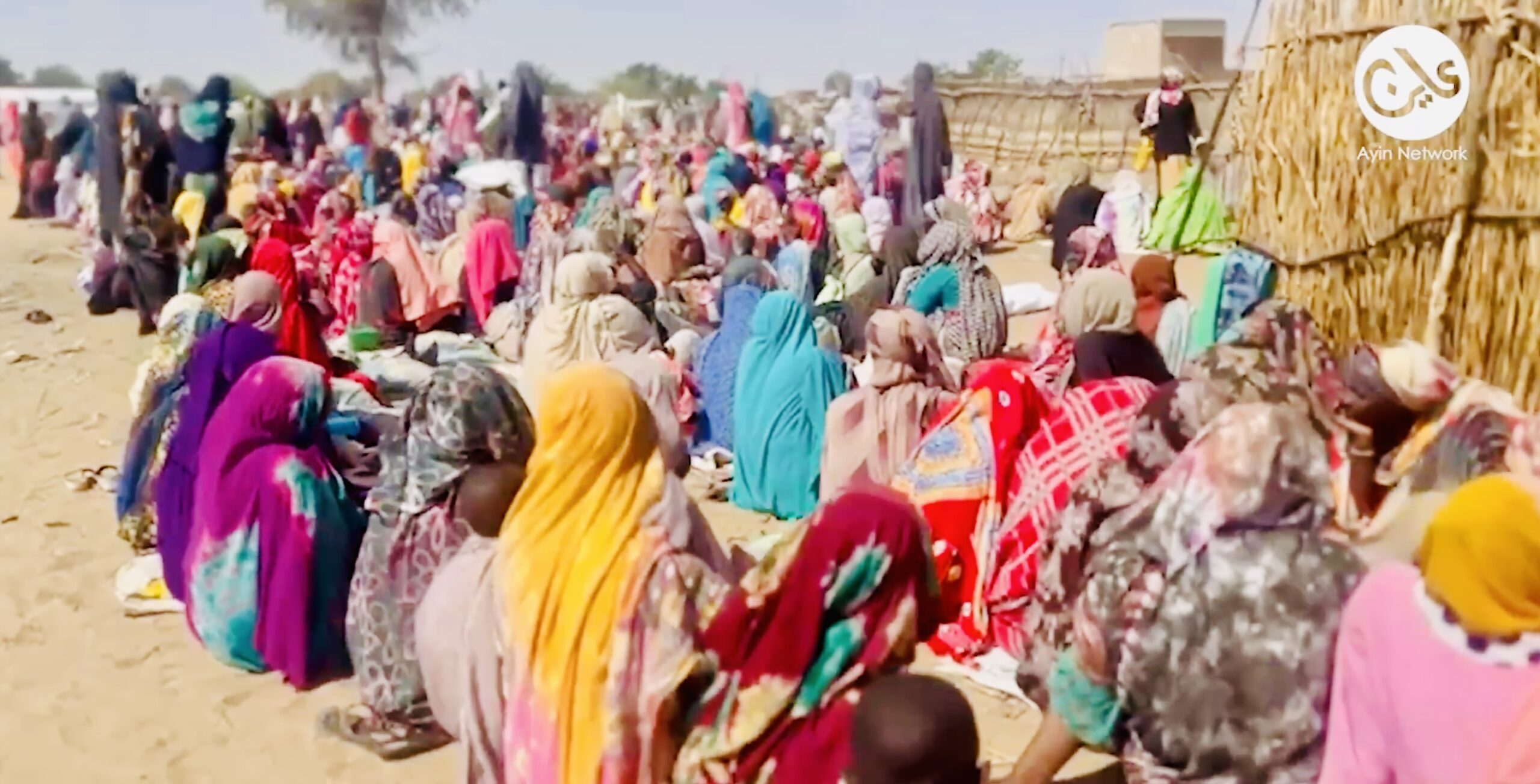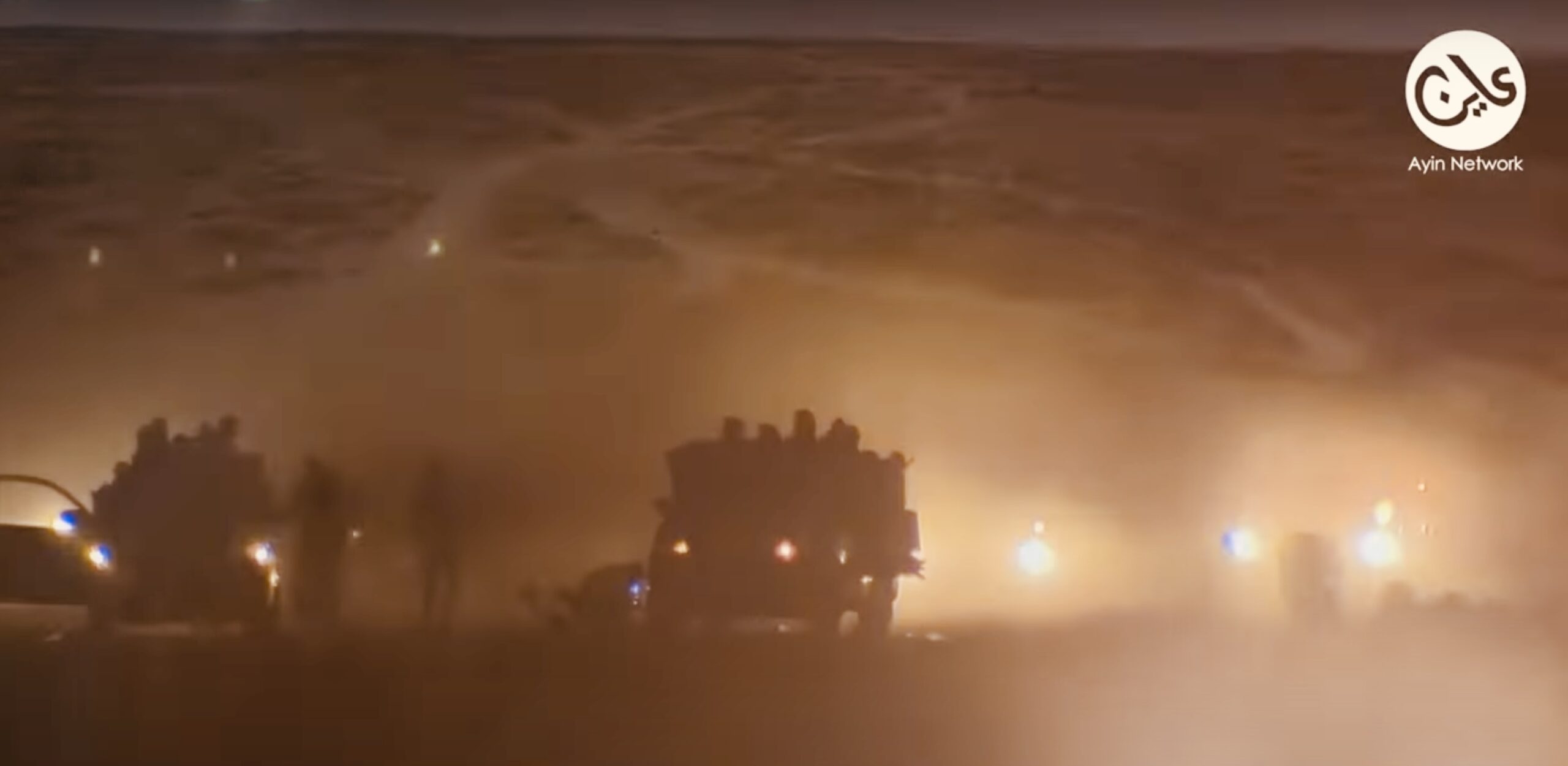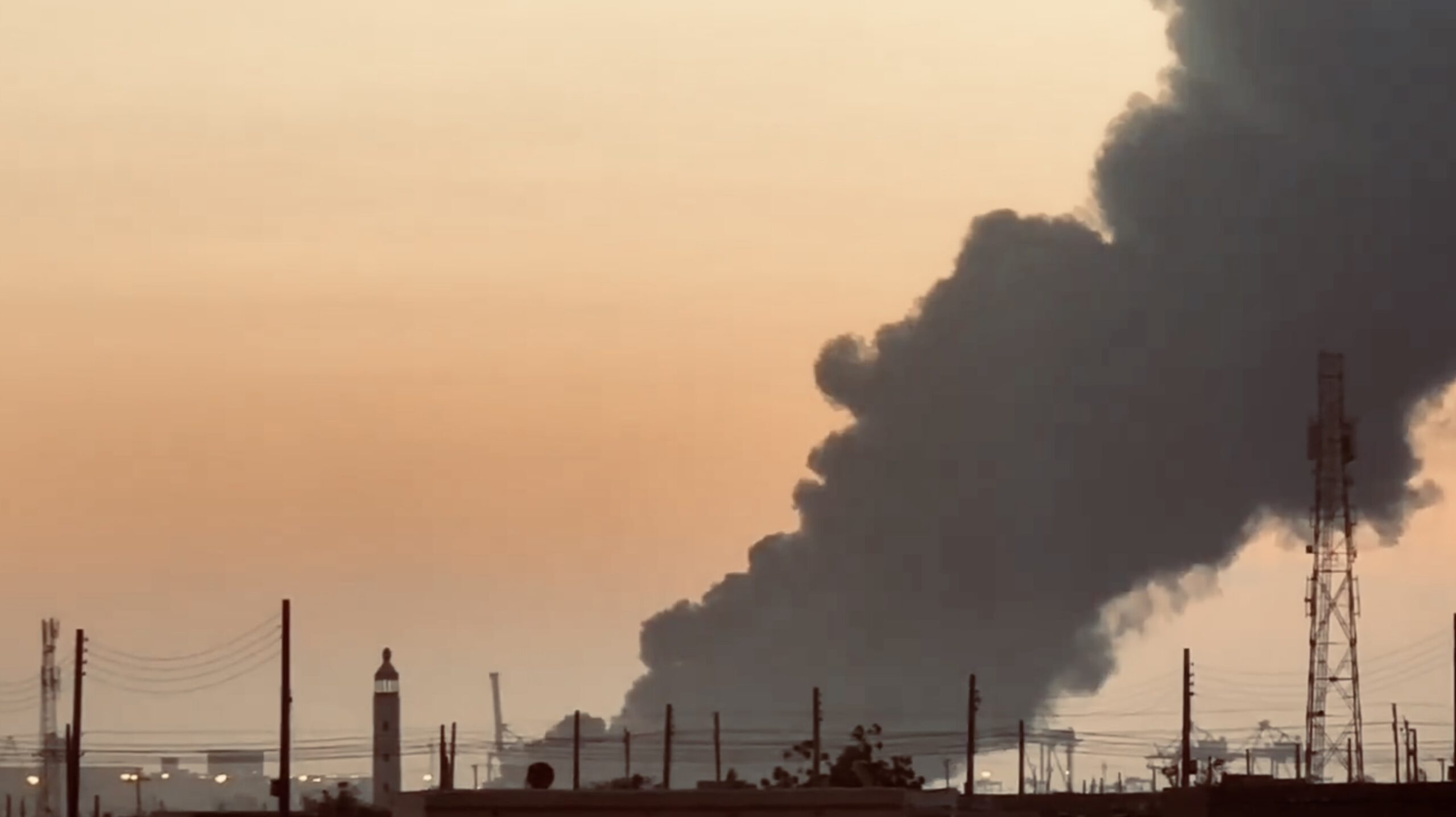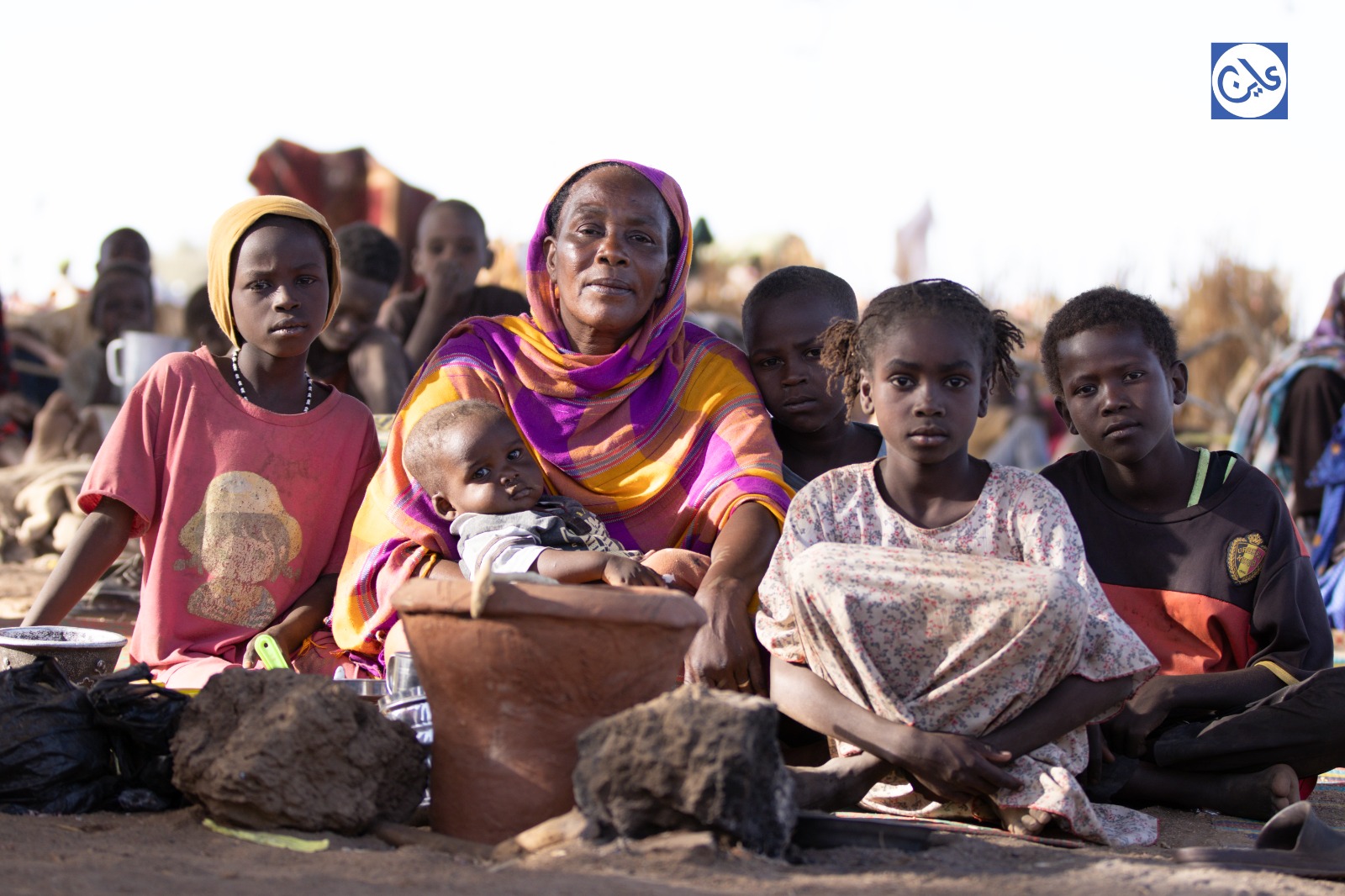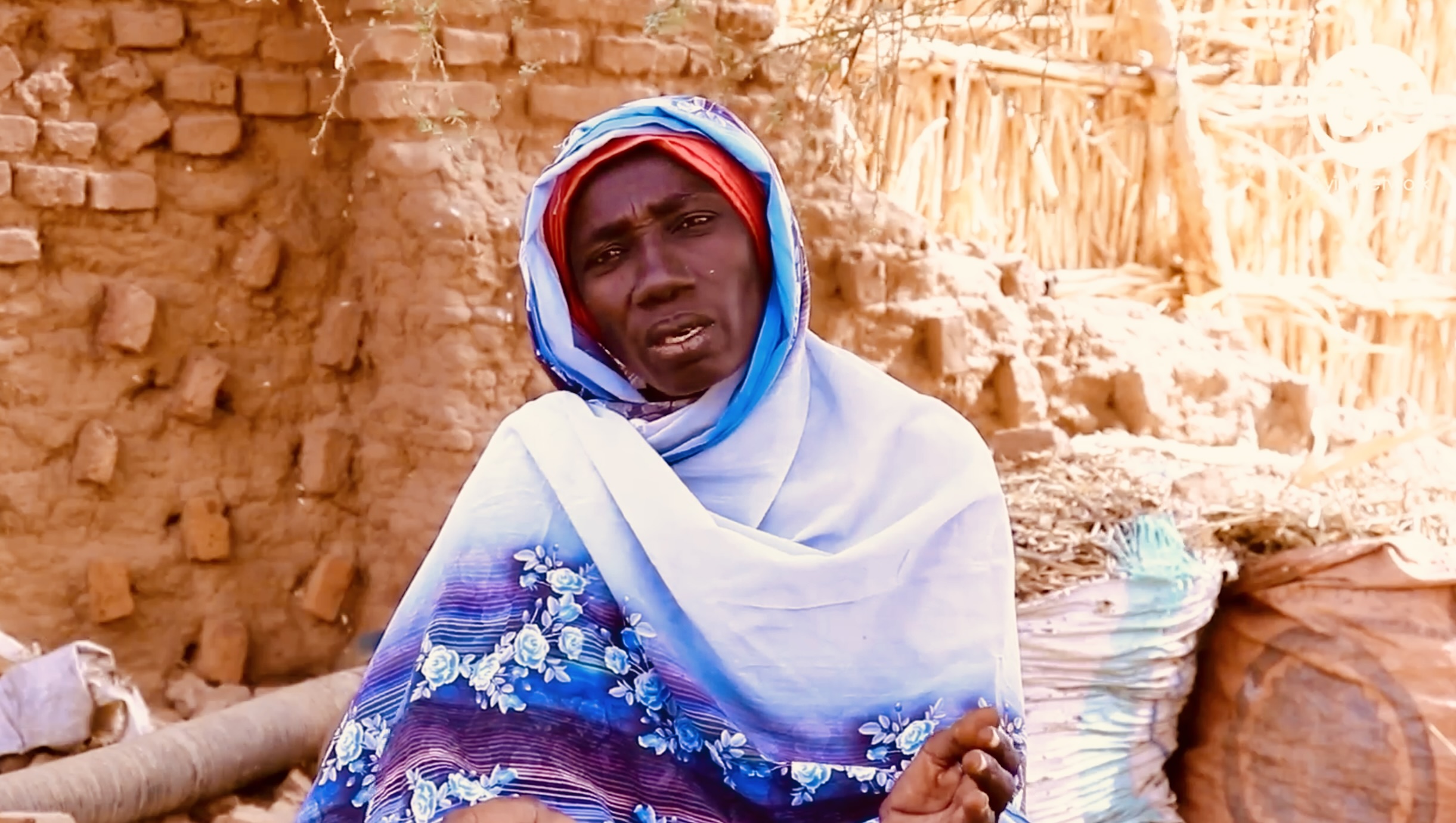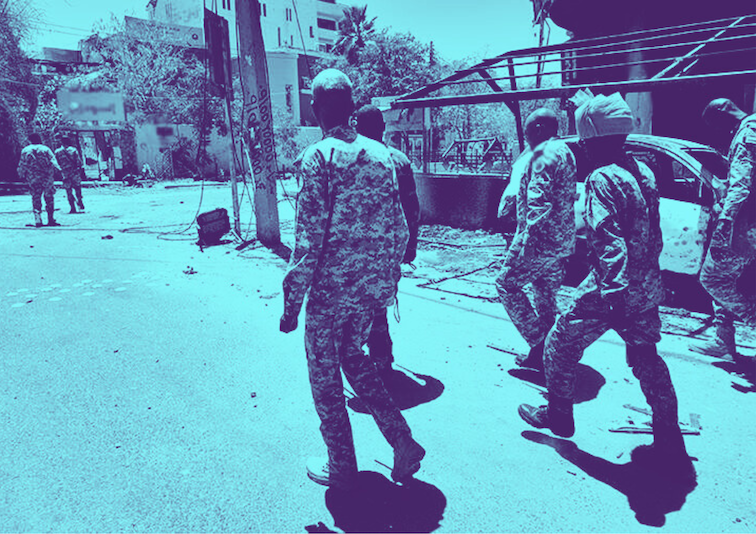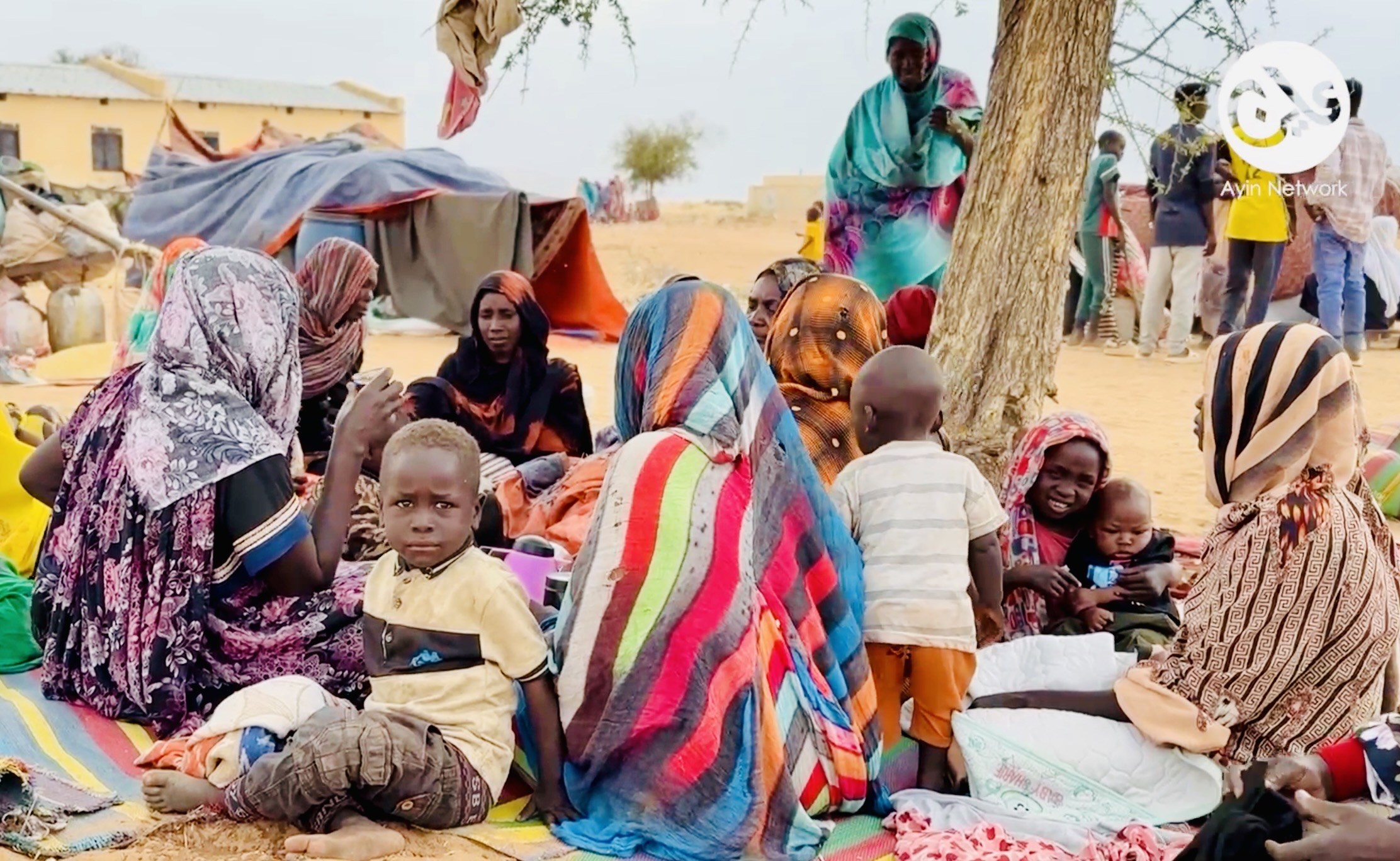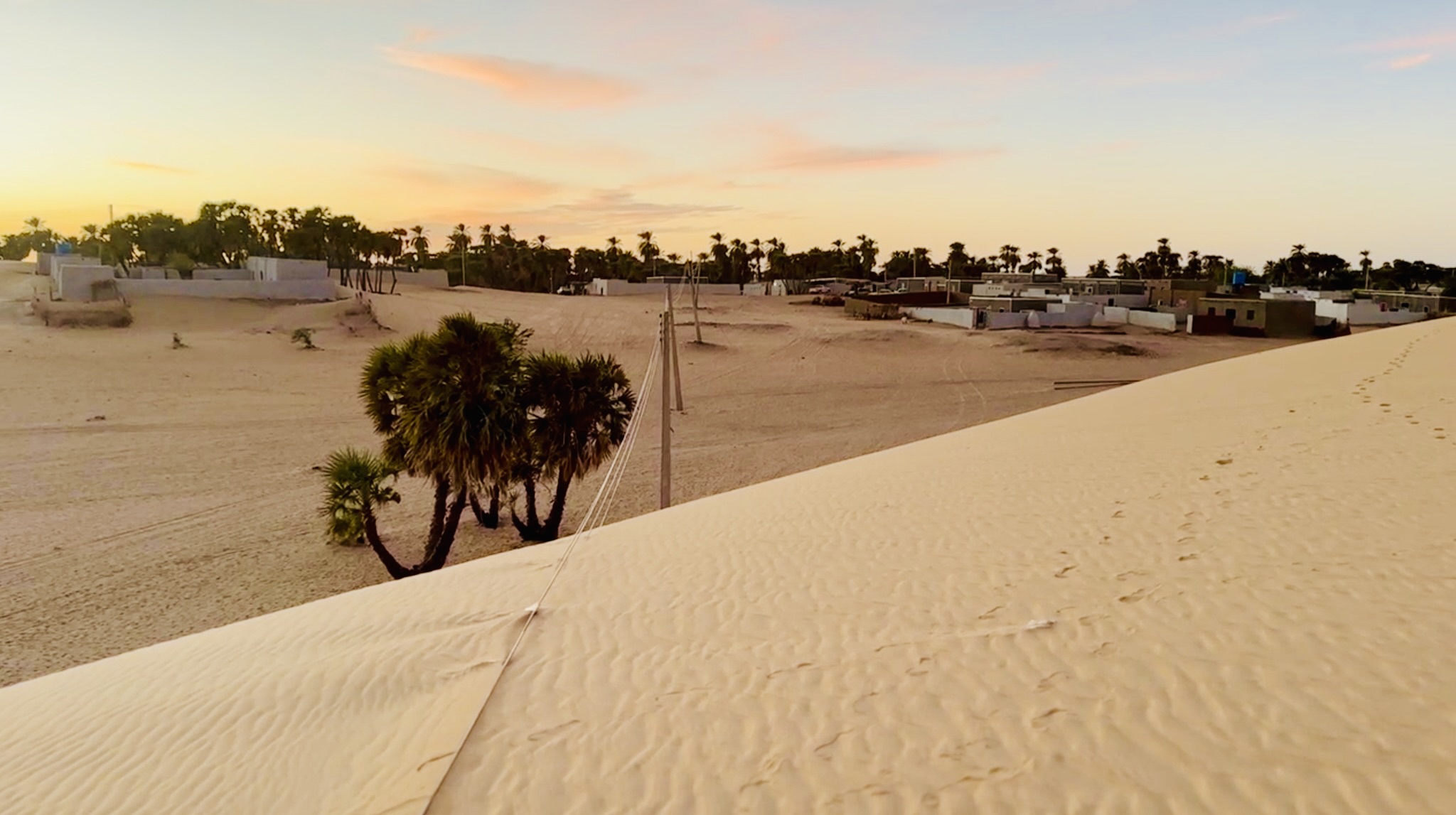Sudan’s Tinderbox: Geneina and Kereinek
4 May 2022
Since last week’s violence, an uneasy calm has permeated the air of West Darfur’s capital, Geneina, and the eastern town of Kereinek. But residents fear more conflict could erupt at any time and even escalate further.
Ethnic communities in West Darfur State are pitted against each other through a politicized conflict between the central and state governments. The heavily armed Arab militias are supported by Sudan’s deputy leader, Lt.-Gen. Mohamed Hamdan Dagalo (“Himmedti”) and seek land and control of the state. In turn, the Masalit community are backed by the West Darfur State Governor and former rebel leader, General Khamis Abkar, and has attempted to counter them.
The heave gunfire in Geneina may have subsided since last Thursday, residents told Ayin, but incidences of sporadic violence continue –killing civilians and armed militiamen alike. Last Saturday, assailants killed four people in Geneina town, according to the Sudan Central Doctors Committee. The day before, three others were killed in Geneina’s fruit market, forcing all shops in El Hanina market to close.
“I keep my movements to a minimum,” says Mustafa Musa* a Masalit who resides in the heavily targeted southern neighbourhood of Geneina. “But the [Arab militias] could attack this area at any time so you never know whether to stay put or keep moving.”
Like past conflicts in Darfur, the fighting started over a smaller dispute between ethnic communities. This time, Arab pastoralists claimed someone within Kereinek town had killed one of their family members, triggering an invasion of the town on 21 April that killed over 20 people from both sides of the conflict. The town of 487,000 residents, roughly a third of them displaced from prior conflicts, is no stranger to these kinds of offensives. A previous attack by RSF and allied militias occurred only five months earlier over a payment dispute for a mobile phone.
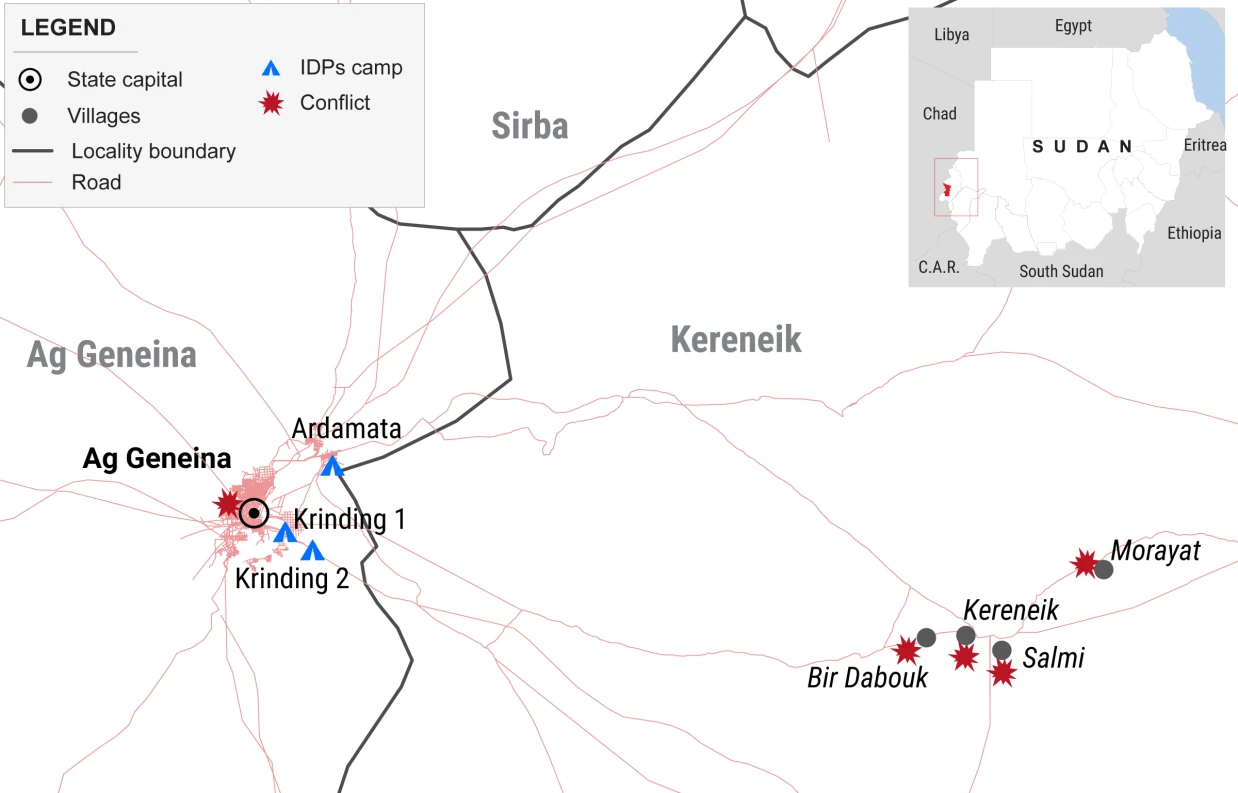
From Kereinek to Geneina
West Darfur State Governor Khamis Abkar blamed the central government joint security forces for “withdrawing without any justification” allowing the fighting on 22 April to resume. “The town was completely destroyed including government institutions,” Abkar said in a press conference. “It is a crime against humanity.”
“The hospital here in Kereinek was completely looted by the militias –even assets and furniture were not spared,” said West Darfur General Coordinator of the displacement camps, Ahmed Sharif. “Unfortunately, there are wounded people here in a very critical condition without medicine, not even medical staff.” With the local hospital Kereinek completely looted, the injured were transported for treatment to Geneina town.
By 25 April, the conflict had spread to the capital where residents told Ayin gunshots could be heard across the city. Governor Akbar claims 210 people were killed in the three days of violence but officials and doctors from Geneina’s main hospital believe the figure is much higher. One official from the hospital told Ayin the total figure was likely over 300 killed since the numbers that appear in the reports are only those checked by medical staff.
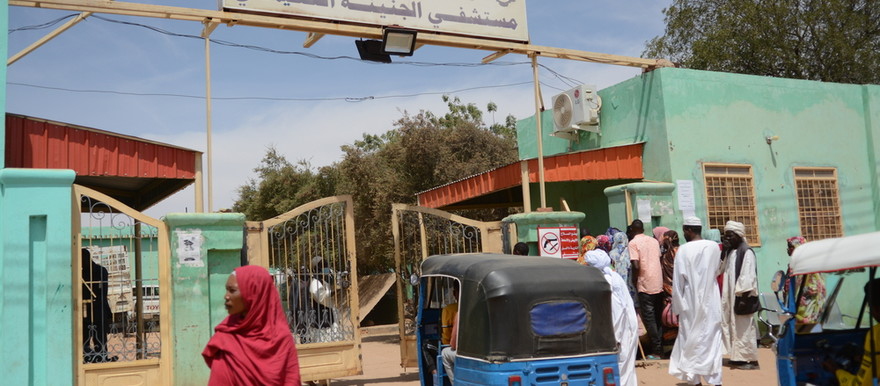
Wars in wards
One of the most horrific scenes in Geneina took place last Monday in the capital’s main hospital. According to a senior official within Geneina Hospital, soldiers from the Sudanese Alliance, former rebels who signed the October 2020 Juba Peace Agreement and joined the government, entered the hospital looking for RSF members. Shooting between the forces ensued, killing one of the doctor’s assistants and a pharmacist, the official told Ayin.
“Although there were patients inside the hospital, neither armed group cared at all about this,” Geneina resident Shifa Adam told Ayin. With four dead and two wounded in the clashes, Dr Yahya Shogar said, the hospital was closed for the first time and work stopped completely for three days, denying countless wounded medical access. Only four mothers remained in the hospital, insisting on staying with their children who needed oxygen support, says Emily Wambugu, a medical worker with the international charity Doctors Without Borders (MSF).
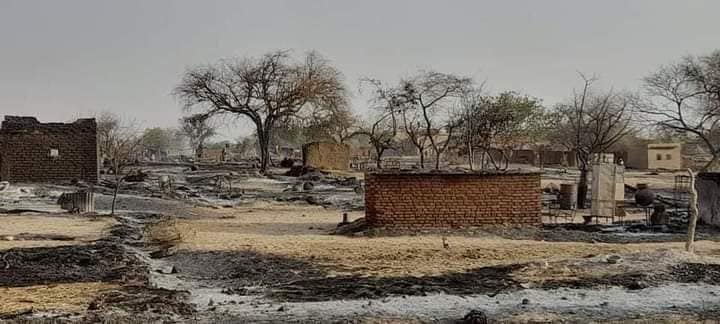
Displaced and nowhere to go
The three days of conflict from 22 – 25 April in Geneina and Kereinek displaced over 100,000 people, according to preliminary UN estimates. “The recent attack has made already poor humanitarian conditions in Kereinek even worse,” Sharif said. “In terms of food, shelter -–this war has destroyed their homes and burnt their food supplies– leaving families displaced and living out in the open. Imagine what this situation would be like – especially in the heat of the sun during the hottest time of the year.” In Sudan, temperatures in May can reach as high as 45 -50 degrees Centigrade (105 – 122 degrees Fahrenheit).
At least 16 villages around Kereinek town were also attacked, the UN reported. Sudan’s Humanitarian Aid Commission (HAC) reported that the villages Salame, Sihebat, Um Rikena, and Shutak were completely looted and burnt to the ground –forcing all residents to desert their homes.
While many residents from Kereinek town and neighbouring villages were displaced, few were able to go anywhere. According to the mayor of Kereinek Town, Nasser al-Zein, all roads remained closed due to the insecurity from 22 – 26 April, denying residents critical humanitarian access. Outside of Kereinek town, only members of the Arab tribes could move freely, the UN reported.
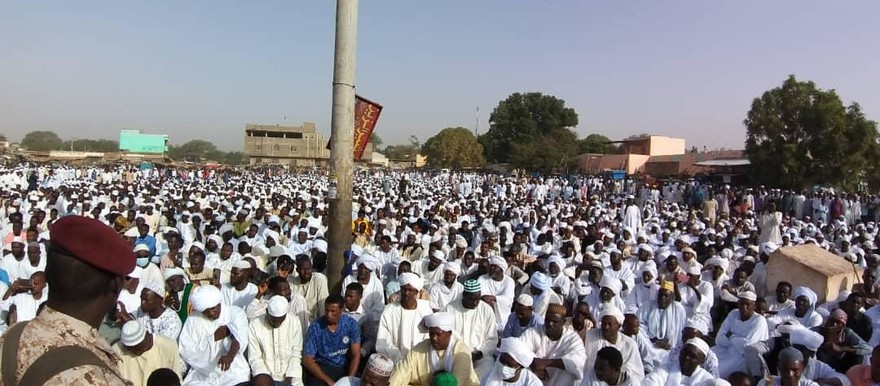
A tinderbox
While Governor Abkar called on Geneina residents to renounce violence and tribalism during a public speech held on Monday during Eid al Fitr prayers, local residents fear the inter-ethnic conflict could easily occur again. With the central government’s ongoing inertia in protecting Darfur civilians coupled with an increasingly charged and armed local population –West Darfur State remains a tinderbox that could spark at any time.
Ever since the hybrid peacekeeping mission of the African Union and United Nations in Darfur (UNAMID) left in 2020, neither the transitional government nor the military authorities who seized power last October have been able or willing to set up a viable security force to replace them. “The attack [on Kereinek] began with all kinds of light and heavy weapons without mercy on citizens and [the government’s] joint security force was there,” says the official spokesperson for the General Coordination of Displaced Persons and Refugees, Adam Rijal. “But they [the joint security force] left the victims at the mercy of the Janjaweed militia.”
No implementation – the Juba Peace Agreement
The Juba Peace Agreement (JPA) signed between former rebel groups in October 2020 was meant to pave the way for a joint security force for Darfur, comprised of the different signatories to the agreement. But Darfur citizens claim the agreement has only made conditions worse for them. “The Juba Peace Agreement is part of the crisis in Darfur and in Sudan in general,” Rijal told Ayin. “It was an agreement of interests and favours, positions and authority, nothing else.” According to the spokesperson of the displaced in Darfur, more killings, displacement, and looting took place after the peace agreement was signed. “The Juba Peace Agreement signatories only brought more problems since they stood with the military and supported the coup.”
Muhammed Adam, a researcher in peace studies at the University of Nyala, South Darfur State, told Ayin that the Darfur rebel groups who signed the peace agreement have become one of the biggest security threats to the region. Instead of being integrated into a security force for Darfur, Adam says, “They have turned into civil forces that possess heavy firepower and defend their tribal components and direct their weapons against other social groups.” Adam attributes this trend to the delay in implementing the security arrangement clauses within the agreement –which could have ostensibly converted these forces into a unified force assigned to protect the populace.
Hadi Idris, the Chairman of the Sudan Revolutionary Front, an umbrella organisation comprising of the rebel groups that signed the peace agreement, and a member of the ruling Sovereign Council, concurs.
In an interview with Sky News, Idris admitted that the agreement still lacked implementation despite being signed over a year and a half ago. “The Juba Peace Agreement addressed a lot of problems in Darfur and in Sudan. For example, there is an entire section that talks about solving problems related to land ownership, including the creation of a special court for land issues,” Idris said in the interview. “But because the agreement has not been implemented, especially the sections that involve citizens, the situation in Darfur has remained as is despite the presence of a peace agreement.”
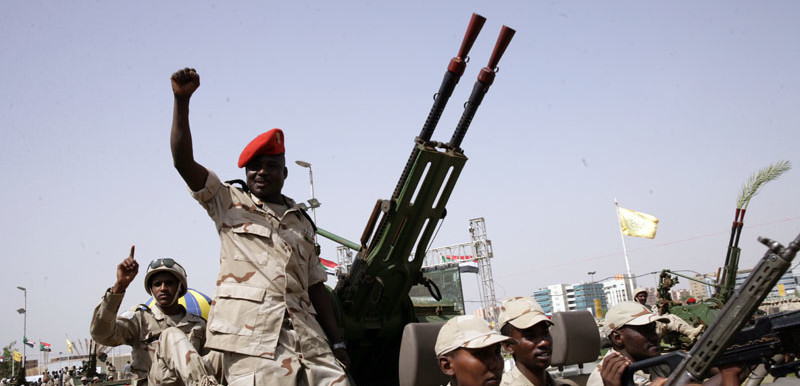
Guilty by association
The dearth of government security has led civilians to arm themselves, Sharif told Ayin. But citizens are rarely able to compete with the Arab militias –especially the RSF, he adds, since the latter is armed by the state. “Therefore, every attack that you see in Darfur is larger than its predecessor, as each side bolsters themselves with more, larger weapons.” The pervasive use of weapons in Darfur has led to repeated cases of “mob justice”, Geneina residents told Ayin, where innocent civilians can be killed based on the false assumption that they are aligned with one of the armed groups. “If you are black and have African features like us [the Masalit], they [the Arab militias] will just shoot you,” Musa said. “They don’t care if you are part of an armed group or not –anyone can be targeted.” Shifa Adam was just inside her house when she heard gunfire outside. Later she learned that members of the former rebel group Sudanese Alliance shot two young boys from the Arab tribes. “They were just citizens with no connection to the RSF.”
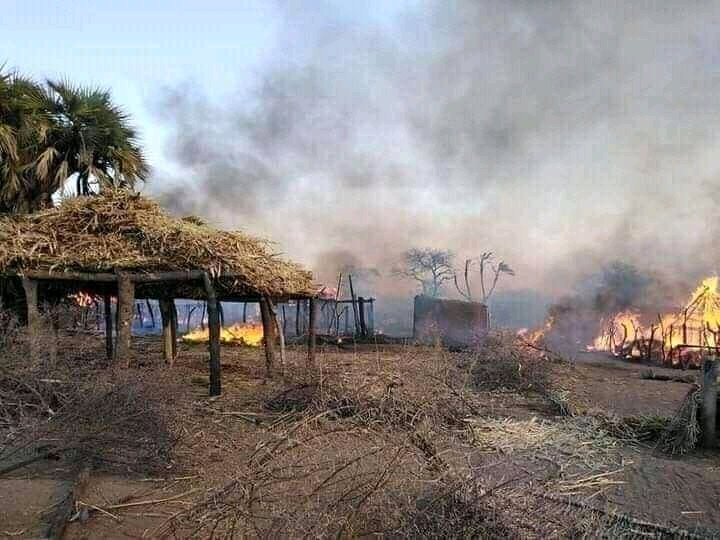
A culture of looting
The arming of civilians in Darfur and targeting citizens of different ethnic backgrounds was the modus operandi of the previous government, says Ayoub Hamat, the head of Al-Ajyal Organisation for Social Development, a Darfur-based non-governmental organisation. “During the war in Darfur, the former ruling National Congress Party gave arms to the Arab tribes without any material return –their only instruction was to attack the Masalit areas. This concept was established by the state and a culture of looting and killing took over.”
Your sons who come back from Yemen buy a motorcycle and a rifle and [then] they threaten you and your sons who are here.”
—Brig. Ali Yaqoub, RSF Commander Central Darfur State
The RSF commander of Central Darfur State, Brigadier Ali Yaqoub made a similar statement during a speech in January. “Your sons that we have recruited into the RSF that go to Yemen came back yesterday with cheques of 10.4 bn Sudanese Pounds (roughly US$25,000). They take this money and buy a motorcycle, a rifle, a scarf, and they leave the Rapid Support Forces,” Brig. Yagoub said. Thousands of RSF members have been recruited by the Kingdom of Saudi Arabia to fight their proxy war against the Houthi rebels in Yemen since 2015 – a dangerous but well-rewarded mission sponsored by the Saudi kingdom. “In one year 8,000 deserted us (the RSF). Instead of investing in a mosque, or Khalwa (Koranic school), or buying some livestock […] motorcycles are used to commit crimes. Your sons who come back from Yemen buy a motorcycle and a rifle and [then] they threaten you and your sons who are here.”
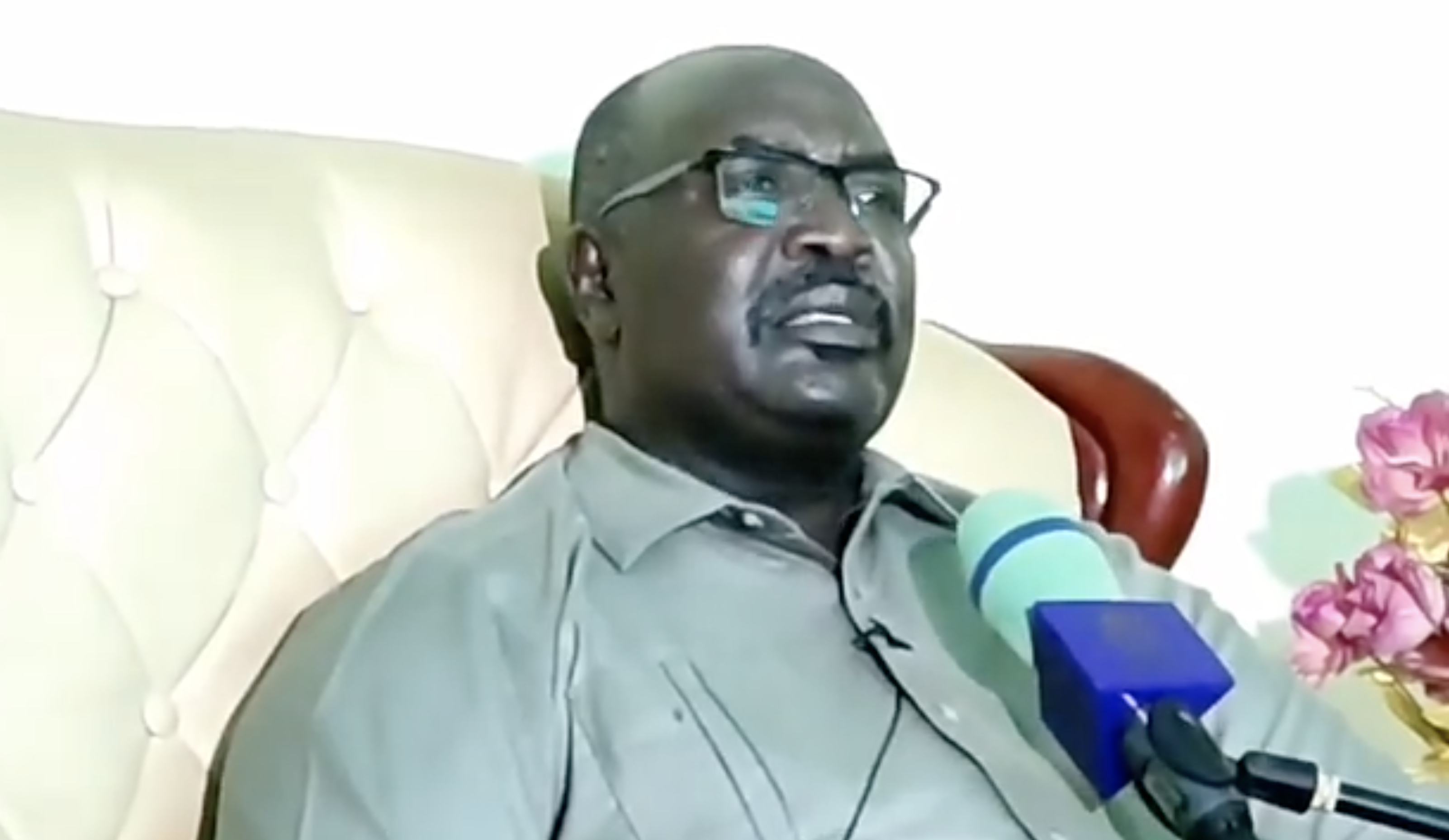
Land appropriation
As the shooting in Geneina town subsided by 28 April, Governor Abkar announced in a speech of a new security arrangement that was “stronger than any time in the past”. The governor boasted that a whole army brigade and two companies of tanks were arriving to protect the population. While some Geneina residents welcomed the initiative, others fear the increased security presence will only trigger further conflict.
To many residents in Geneina, the solution to the repeated violence is to address the crux of the problem: land. “It is very clear today that we are seeing a conflict between the army and the RSF,” Sharif said. “But the true nature of the conflict is a struggle over settlement and the appropriation of resources.” According to Rijal, all the places where conflict has taken place in West Darfur have occurred in resource-rich areas. “All these areas are being taken over by one community –-the one with more arms. This was the plan from day one.”
* Named changed for security purposes




